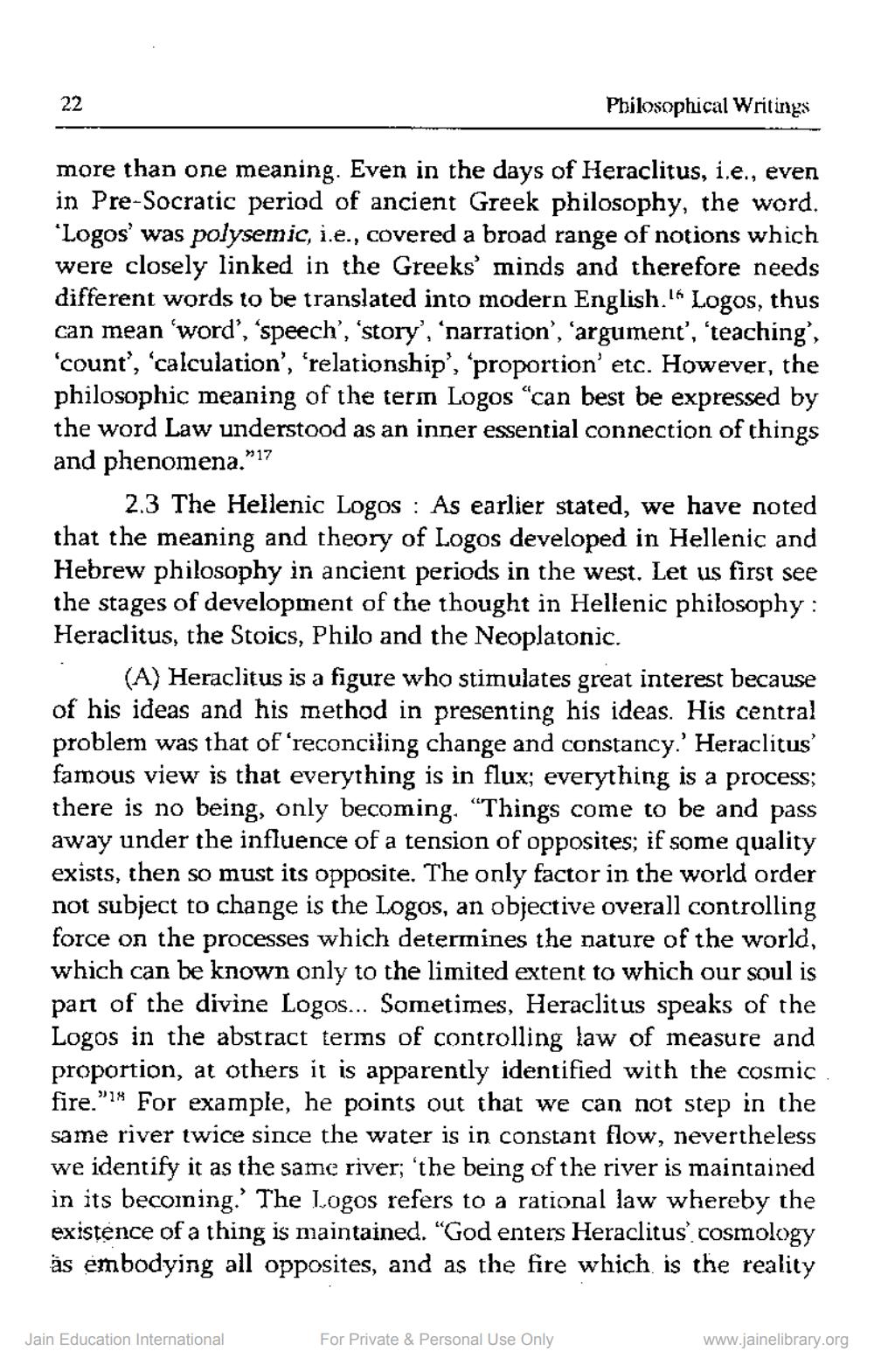________________
22
Philosophical Writings
more than one meaning. Even in the days of Heraclitus, i.e., even in Pre-Socratic period of ancient Greek philosophy, the word. *Logos' was polysemic, i.e., covered a broad range of notions which were closely linked in the Greeks' minds and therefore needs different words to be translated into modern English. Logos, thus can mean 'word', 'speech', 'story', 'narration', 'argument, 'teaching', 'count', 'calculation', 'relationship', proportion' etc. However, the philosophic meaning of the term Logos "can best be expressed by the word Law understood as an inner essential connection of things and phenomena."17
2.3 The Hellenic Logos : As earlier stated, we have noted that the meaning and theory of Logos developed in Hellenic and Hebrew philosophy in ancient periods in the west. Let us first see the stages of development of the thought in Hellenic philosophy : Heraclitus, the Stoics, Philo and the Neoplatonic.
(A) Heraclitus is a figure who stimulates great interest because of his ideas and his method in presenting his ideas. His central problem was that of 'reconciling change and constancy.' Heraclitus' famous view is that everything is in flux; everything is a process; there is no being, only becoming. “Things come to be and pass away under the influence of a tension of opposites; if some quality exists, then so must its opposite. The only factor in the world order not subject to change is the Logos, an objective overall controlling force on the processes which determines the nature of the world, which can be known only to the limited extent to which our soul is part of the divine Logos... Sometimes, Heraclitus speaks of the Logos in the abstract terms of controlling law of measure and proportion, at others it is apparently identified with the cosmic fire.”?# For example, he points out that we can not step in the same river twice since the water is in constant flow, nevertheless we identify it as the same river; 'the being of the river is maintained in its becoming. The Logos refers to a rational law whereby the existence of a thing is maintained. "God enters Heraclitus cosmology as embodying all opposites, and as the fire which is the reality
Jain Education International
For Private & Personal Use Only
www.jainelibrary.org




